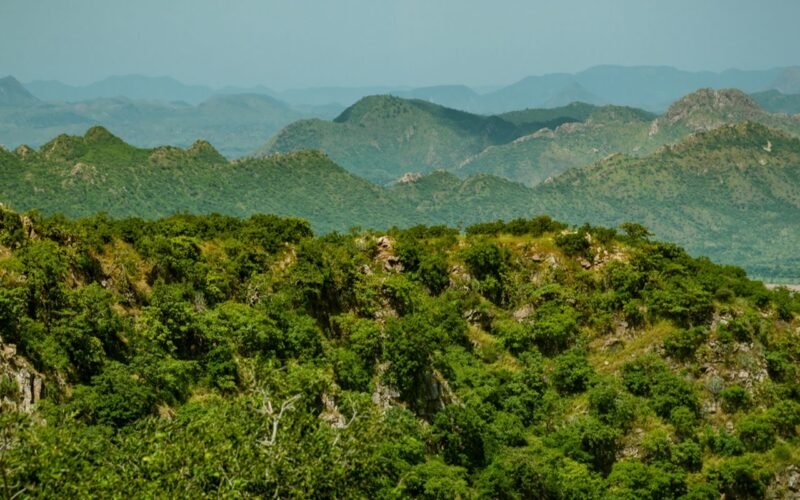November 07, 2023 – In a forward-thinking move to mitigate the increasing instances of big cats straying into urban areas, Gurugram has launched a unique conservation initiative known as the ‘Leopard Park.’ This visionary project intends to establish a 15-kilometer jungle corridor between two vulnerable points in Gurugram, effectively creating a haven for wildlife.
The necessity for such an initiative became apparent due to the rising incidents of conflicts between humans and wild animals, often culminating in tragic outcomes. To address this pressing issue, the Leopard Park will be developed in Behrampur village as part of a comprehensive conservation strategy, encompassing a 15-kilometer stretch of the Aravalis, from the Bandhwari landfill to Damdama Lake within the city.
Taking inspiration from the successful Jhalana Leopard Safari Park in Jaipur, the Gurugram Leopard Park is envisioned as a long-term solution to the problem of big cats straying into the city. The Jhalana Leopard Safari Park, renowned for its efforts in providing a safe environment for leopards, will serve as a model for the development and management of the Gurugram Leopard Park.
Authorities have undertaken the task of commissioning a detailed study of the Aravalis, with the aim of completing the study by March of the coming year. This proactive approach was initiated earlier this year, reflecting the urgency of the situation. The findings of this study will be presented to the Aravali Rejuvenation Board, comprising representatives from various relevant departments such as mining, forest, environmental authorities, and district administration. This board is entrusted with formulating a comprehensive action plan to safeguard the Aravali Hills from environmental degradation and unchecked mining.
It is worth noting that leopards frequently traverse between the Aravalis in Gurugram and Faridabad, the Sariska Tiger Reserve in Rajasthan, and the Asola Bhatti Wildlife Sanctuary in Delhi. This dynamic movement underscores the significance of establishing secure wildlife corridors to ensure the harmonious coexistence of humans and wildlife.
In a significant development, representatives from Gurugram’s development authority and several government departments will be given an informative tour of the Jhalana Leopard Park in November. The Gurugram Metropolitan Development Authority (GMDA) will be providing financial support for this knowledge-sharing initiative.
The ‘Leopard Park’ project in Gurugram is a testament to the city’s commitment to environmental conservation and sustainable cohabitation with its wild neighbors. As the project progresses, it holds the potential to serve as a model for other regions facing similar challenges of human-wildlife conflict. With the right measures in place, we can hope for a future where both humans and animals thrive in harmony.
